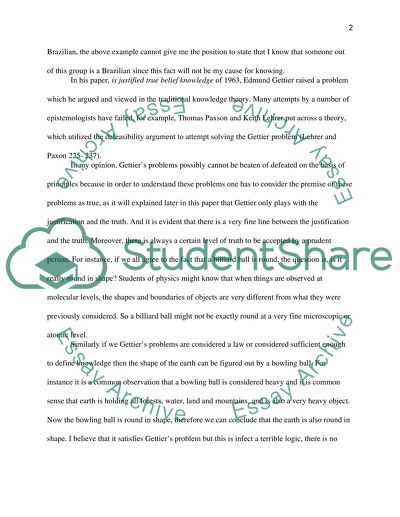Cite this document
(“The Gettier Problem Essay Example | Topics and Well Written Essays - 1750 words”, n.d.)
Retrieved from https://studentshare.org/philosophy/1438197-the-gettier-problem
Retrieved from https://studentshare.org/philosophy/1438197-the-gettier-problem
(The Gettier Problem Essay Example | Topics and Well Written Essays - 1750 Words)
https://studentshare.org/philosophy/1438197-the-gettier-problem.
https://studentshare.org/philosophy/1438197-the-gettier-problem.
“The Gettier Problem Essay Example | Topics and Well Written Essays - 1750 Words”, n.d. https://studentshare.org/philosophy/1438197-the-gettier-problem.


